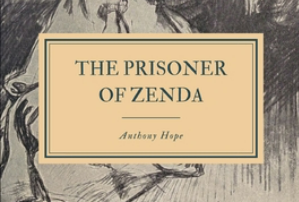Chapter 10 — A Great Chance for a Villain
byChapter 10 — A Great Chance for a Villain draws Rudolf Rassendyll deeper into the complicated entanglement of duty, deception, and emotional sacrifice. Chapter 10 — A Great Chance for a Villain opens with Sapt presenting Rassendyll a confidential police report that confirms Duke Michael’s suspected involvement in the King’s disappearance. It also outlines the close circle of allies supporting Michael, including the enigmatic Madame de Mauban. More importantly, the report reveals growing unease among the Ruritanian public over the King’s seeming neglect of Princess Flavia, whose affection for the man she believes to be her betrothed monarch has only grown stronger. For Rassendyll, this intelligence report does more than outline political risks—it casts a sharp light on the personal cost of the charade he’s upholding, especially as it concerns Flavia’s trust and the nation’s stability.
Following this sobering briefing, Rassendyll meets with Sapt and Fritz to discuss a controversial but necessary move—he must publicly continue wooing Princess Flavia. Though this decision is driven by political necessity, it weighs heavily on Rassendyll’s conscience. His feelings for Flavia have deepened, yet he remains acutely aware that any romantic gestures he makes are rooted in a lie. This moral tension builds further when Rassendyll attends a grand ball, where his public courtship of Flavia must appear convincing, even celebratory. Amid the glow of chandeliers and whispers of nobility, he plays his role with precision. Flavia, unaware of the truth, responds with sincere affection, making the illusion harder for him to bear. The growing affection between them is both heartwarming and tragic, especially as the crowd interprets their closeness as a hopeful sign of unity and peace for the kingdom.
Their quiet, emotionally charged exchange at the ball is soon cut short by the abrupt appearance of Sapt. His interruption reminds both Rassendyll and the reader that the stakes transcend personal happiness. Behind the romance lies a mission fraught with danger—a looming confrontation with Duke Michael, who still holds the real King hostage. Rassendyll’s moment of closeness with Flavia is stripped away by the return of strategy and duty. Sapt’s appearance isn’t simply a narrative device; it reflects the unrelenting pressure that follows Rassendyll at every turn. He cannot afford to forget that every affectionate glance or whispered promise to Flavia deepens the moral abyss he’s sliding into. He is not a free man pursuing love; he is a pretender walking a narrow line between heroism and betrayal.
Later that night, solitude grants Rassendyll a moment to reflect. The chapter ends with him alone, contemplating the ramifications of his choices. His mind drifts not just to the tactical risks but to the emotional aftermath of what he is doing to a woman he truly admires. He realizes that while he may be defending a kingdom, he is also inadvertently breaking the heart of an innocent. That realization cuts deeper than any threat Duke Michael could pose. The “great chance for a villain” mentioned in the title is not just Duke Michael’s plot—it could easily apply to Rassendyll himself, should he continue to exploit Flavia’s feelings. This dual meaning gives the chapter its emotional weight. Rassendyll is no villain, yet the longer he maintains the ruse, the more he risks becoming one in the eyes of those who love and trust him.
This chapter powerfully juxtaposes themes of romantic idealism with the grim demands of political survival. The masquerade Rassendyll performs is no longer just a matter of national emergency—it is now deeply personal, fraught with emotional consequences. As duty and desire collide, the lines between right and wrong blur, reminding readers that even noble acts can come with devastating costs. Rassendyll’s internal struggle sets the stage for future chapters, where honor, love, and sacrifice will clash more forcefully than ever before.


